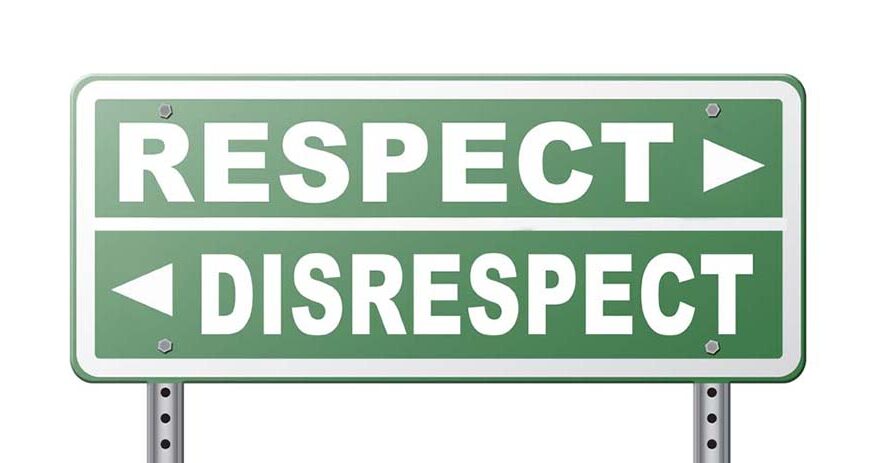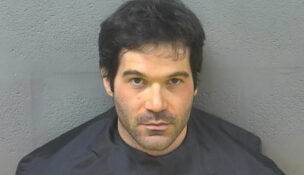A call for mandating civility
By: Laura Brown//October 26, 2023//

A leading proponent of mandatory civility in the legal academy has just claimed a top prize for his essay on the subject.
David Grenardo, professor and associate director of the Holloran Center for Ethical Leadership in the Professions at St. Thomas Law, won the 2023 American Inns of Court Warren E. Burger Prize for his most recent scholarship on the topic. This prize recognizes the best scholarship that contributes in the areas of professionalism, ethics, civility, and excellence.
“Incivility has been a problem in the legal profession for years, and Rambo litigation tactics in the 1980s brought this issue to the forefront,” Grenardo said. “The data does not exist to determine empirically if civility has gotten worse, but it is definitely still a problem, and something should be done to address it.”
Grenardo has written multiple articles on civility over the past decade. He is also a frequent presenter on issues surrounding professionalism and ethics across the country, including at the ABA Conference on Professional Responsibility and the American Inns of Court’s Annual National Conversation on Civility.
The award-winning essay, titled “Debunking the Major Myths Surrounding Mandatory Civility for Lawyers Plus Five Mandatory Civility Rules That Will Work,” suggests mandatory civility rules and responds to arguments against mandatory civility. This essay is forthcoming in the Georgetown Journal of Legal Ethics.
Grenardo offers several reasons for his claims that incivility is on the rise. Lawyers and law students have a mistaken belief — whether that is from a popular television show or observing other lawyers’ behaviors in real life — that being uncivil makes one a better a lawyer. Also, because much communication has moved online, lawyers might find it easier to be mean to one another than if they had an in-person conversation. Additionally, the very adversarial system can bring undesirable behaviors to the forefront.
Grenardo acknowledged that the profession has made efforts to improve civility, such as with CLE programs, civility codes and oaths, and overall calls for civility. While admirable, Grenardo argued, those steps have simply fallen short of the goal.
“Those efforts have not been successful systemically because the lawyers who are already inclined to be civil will continue to be civil,” Grenardo explained. “The lawyers who are inclined to be uncivil will continue to be if they do not face tangible consequences for their incivility.”
“Unless a lawyer who believes uncivil conduct is fine experiences negative consequences directly because of their uncivil conduct, then it is unlikely they will change their behavior on their own. Mandatory civility is required,” added Grenardo.
Grenardo lays out five proposed rules of mandatory civility in the essay. These rules include avoiding disparaging personal remarks, good faith communication with opposing counsel, granting reasonable time extensions when it does not prejudice the client, identifying changes made in documents, and committing oral understandings to writing accurately and completely.
These rules are necessary, Grenardo argued, given the widespread nature of incivility in the practice. For instance, in a brief filed with the U.S. Supreme Court this year, one attorney described another attorney’s work as a “hot mess,” language Grenardo contended does not improve the public’s perception of lawyers or the legal system.
“Calling another attorney’s work garbage or a hot mess is very different from a facts-based statement such as, ‘I tried to meet and confer with opposing counsel on three separate occasions via email and phone call on the following dates…, but opposing counsel failed to respond to any of my communications,’” Grenardo said.
“This is a phrase we would expect to hear while watching reality tv shows (think “Love is Blind” or “Big Brother”) or while having a conversation around the water cooler as a co-worker talks about some Tinder date gone wrong,” Grenardo said. “Uncivil and unprofessional language showing up in a brief filed with the highest court (or any court) in our judicial system does nothing to elevate the public’s perception of lawyers, which represent the justice system, but instead it makes the public believe that lawyers are simply playing in the mud like the rest of society, and winning in court is less about sophisticated and creative legal arguments or justice and more about smearing the other side.”
The use of language such as this also does little to promote one’s stance in court, Grenardo maintained.
“How does using this colloquial phrase to describe opposing counsel’s written submission to the court help the court determine the issues? Name-calling or bad-mouthing another attorney or their work does little to advance one’s case on the merits,” Grenardo averred. “The court reads these words and may become distracted or disappointed by the language used, which may hurt the author’s ability to persuade the court and prevail for their client. The lawyer may lose credibility in the eyes of the court. The attempt to humiliate or embarrass opposing counsel is not worth it.”
In the article, Grenardo also responds to criticisms of the mandatory rules. One worry is that this would increase the workload of the OLPR.
“It’s interesting how opponents of mandatory civility sometimes argue that incivility is not that big of a problem, but if civility became mandatory, then incivility complaints would overwhelm the ethics/disciplinary counsel’s office,” Grenardo mused. “In any event, other states have not experienced a need to increase their staff to deal with civility complaints once it became mandatory.”
In states such as Arizona and Michigan, Grenardo reported, no staff increases were necessary at their disciplinary offices. Additionally, Grenardo explained that, oftentimes, civility complaints are not made in isolation but are included with other violations, meaning it would have a negligible effect on workload.
Another concern is that uncivil lawyers weaponize the rules, but Grenardo responded that “uncivil lawyers can do that now with the existing ethics/rules of professional conduct” and that the process provides system checks. “If disciplinary counsel, such as the OLPR, does not find probable cause that a violation occurred, then the case is dismissed,” Grenardo said. “Most complaints filed are dismissed.”
Finally, some might worry that the mandatory civility rules would stymie their self-expression. Grenardo stressed that the rule that prevents attorneys from making personally disparaging remarks about a lawyer or someone involved in the legal process would not infringe on an attorney’s exercise of free speech.
“There is no constitutional right to insult another individual personally, and even if one existed, then lawyers should be held to a higher standard of conduct,” Grenardo said.
Legal News
- Flight attendant indicted in attempt to record girl in airplane bathroom
- Wisconsin attorney loses law license, ordered to pay $16K fine
- Former Wisconsin police officer charged with 5 bestiality felony counts
- Judge reject’s Trump’s bid for a new trial in $83.3 million E. Jean Carroll defamation case
- Dozens of deaths reveal risks of injecting sedatives into people restrained by police
- The Latest: Supreme Court arguments conclude in Trump immunity case
- Net neutrality restored as FCC votes to regulate internet providers
- Wisconsin Attorney General asks Congress to expand reproductive health services
- Attorney General Kaul releases update at three-year anniversary of clergy and faith leader abuse initiative
- State Bar leaders remain deeply divided over special purpose trust
- Former Wisconsin college chancellor fired over porn career is fighting to keep his faculty post
- Pecker says he pledged to be Trump campaign’s ‘eyes and ears’ during 2016 race
WLJ People
- Power 30 Personal Injury Attorneys – Russell Nicolet
- Power 30 Personal Injury Attorneys – Benjamin Nicolet
- Power 30 Personal Injury Attorneys – Dustin T. Woehl
- Power 30 Personal Injury Attorneys – Katherine Metzger
- Power 30 Personal Injury Attorneys – Joseph Ryan
- Power 30 Personal Injury Attorneys – James M. Ryan
- Power 30 Personal Injury Attorneys – Dana Wachs
- Power 30 Personal Injury Attorneys – Mark L. Thomsen
- Power 30 Personal Injury Attorneys – Matthew Lein
- Power 30 Personal Injury Attorneys – Jeffrey A. Pitman
- Power 30 Personal Injury Attorneys – William Pemberton
- Power 30 Personal Injury Attorneys – Howard S. Sicula












